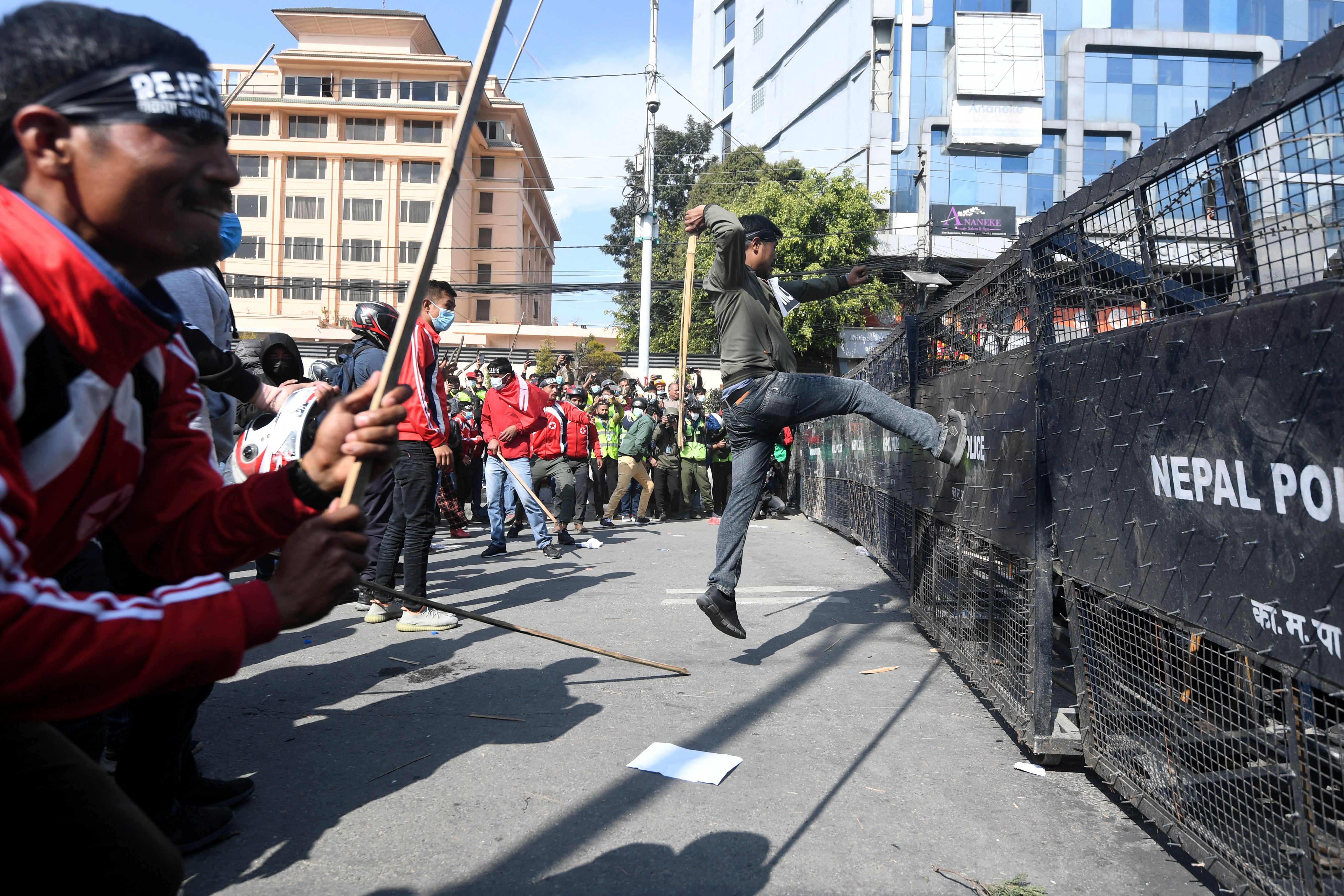Nepal approves contentious $500m aid grant as protesters hit with tear gas and water canons
Protesters claimed the grant would undermine the country’s law and sovereignty

Your support helps us to tell the story
This election is still a dead heat, according to most polls. In a fight with such wafer-thin margins, we need reporters on the ground talking to the people Trump and Harris are courting. Your support allows us to keep sending journalists to the story.
The Independent is trusted by 27 million Americans from across the entire political spectrum every month. Unlike many other quality news outlets, we choose not to lock you out of our reporting and analysis with paywalls. But quality journalism must still be paid for.
Help us keep bring these critical stories to light. Your support makes all the difference.
Nepal’s parliament on Sunday ratified the contentious $500m infrastructure grant from the United States, as hundreds of protesters opposed to the aid clashed with the police.
Police used teargas, water cannons, and rattan sticks to disperse protesters and prevent them from marching to parliament, reported Reuters.
The government was able to convince legislators after a debate in parliament. Speaker Agni Sapota announced that the grant agreement was approved by the lawmakers through a majority voice vote.
The Millennium Challenge Corporation (MCC), a US government aid agency, in 2017 had agreed to provide the aid in a grant to fund electricity transmission line and road improvement projects.
While Washington claimed that the aid does not come with strings attached and would not have to be repaid, a rift arose within the ruling alliance with opponents claiming that the grant would undermine the country’s law and sovereignty as the government would not have sufficient control over the projects.
The opponents of the aid include key coalition partners Communist Part of Nepal-Maoist Centre and the Communist Part of Nepal-United Socialist. With a fast-approaching 28 February deadline set by the US government to endorse the grant project, a meeting of the ruling alliance commenced earlier in the day at Prime Minister Sher Bahadur Deuba’s residence to develop a consensus.
The leaders of the coalition government eventually agreed to ratify the grant after adopting a 12-point “interpretive declaration” clause which stated that MCC will not be considered a part of US military strategy and that it would not be above Nepal’s constitution and laws.
"The agreement will bring Nepal under the security umbrella of the United States and should be rejected," Bhim Rawal, a member of the opposition Nepal Communist Party (Unified Marxist-Leninist), argued in parliament.
Finance minister Janardan Sharma, however, assured that the aid was not a part of the US’s Indo-Pacific strategy and had no military objectives.
“It will promote the interest and welfare of the country and should be accepted,” Mahant Thakur, a deputy of the Loktantrick Samajwadi Party, said during the parliament debate.
Additional reporting from wires
Join our commenting forum
Join thought-provoking conversations, follow other Independent readers and see their replies
Comments